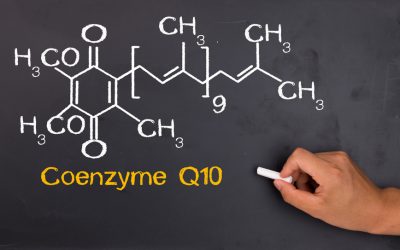The Observed Effects of Vitamin E Supplementation on High Blood Pressure
Chronic diseases top the charts for mortality rates in the United States as well as globally, with the burden stemming from cancers, diabetes, to cardiovascular disorders. Lifestyle risk factors greatly contribute to these diseases including diet, physical activity, smoking, and alcohol consumption. Nutritional risk factors are central to this discussion, and the analysis of a variety of diets is pertinent to progressing chronic disease prevention. An up and coming field delves into the use of anti-oxidative vitamins to suppress and heal the hypermetabolic state that causes many of these diseases. Antioxidants help to diminish the number of oxidative species in the body, which promote plaque buildup on blood vessels and ultimately weaken blood flow throughout the body.
A 2013 Japanese review aimed to summarize data from the National Health and Nutrition Survey to investigate the relationship between hypertension and vitamin E intake. The focus of this study rested on the oxidative damage to cells that high blood pressure can inflict. Vitamin E intake was assessed along with potassium, vitamin C, and magnesium to gauge any responses of hypertensive complications. Vitamin E is a fat-soluble antioxidant vitamin with known capabilities to reduce oxidative stress. Vitamin E is widespread in the human diet, found in many types of oil including sunflower oil, almond oil, safflower oil, palm oil, and olive oil. Vitamin E can be ingested through the diet in dense, leafy vegetables like spinach, collard greens, and beet greens. Avocados, asparagus, kiwis, broccoli, pumpkin, and tomatoes are only a few of the variety of foods that are rich in Vitamin E.
This study evaluated individual’s blood pressure status, triglyceride levels, and HDL cholesterol to assess the severity of a hypertensive state. After this observational trial was conducted, the researchers evaluated the collected data to find that vitamin E displayed a large impact on hypertension. Individuals in the highest group for vitamin E consumption maintained the lowest percentage of hypertension among the three group levels. The results did not vary when accounting for if the vitamin E was ingested in food or in supplemental form. For those without hypertension and ingesting high levels of vitamin E, the odds of them developing hypertension was drastically lower. Additionally, systolic blood pressure levels decreased among individuals with increased vitamin E intake.
The results from this summary study and countless other research efforts have confirmed that vitamin E intake is incredibly beneficial for the treatment of high blood pressure and hypertensive complications. It is essential that humans seek inflated vitamin E levels through a variety of foods or proper supplementation.
Kuwabara A., Nakade M., Tamai H., Tsuboyama-Kasaoka N., Tanaka K. “The Association between Vitamin E Intake and Hypertension: Results from the Re-Analysis of the National Health and Nutrition Survey.” Journal of Nutritional Science and Vitaminology 60(4): 239-245. 2014. doi:10.3177/jsnv.60.239


